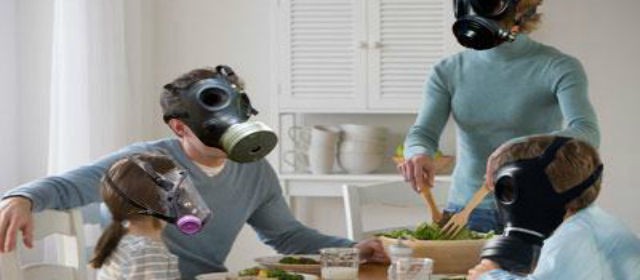Three Unavoidable Health Hazards

Worrying about everyday problems will shorten your life. A British study found that people who reported feeling even mild anxiety—the sort that distracted them, depleted their self-confidence, or occasionally kept them awake at night were 16 percent more likely to die over a 10-year period than people with no such concerns. About one in four people experiences mild anxiety, but most go untreated. Mild stressors, including those surrounding work, finances, and relationships are so common that they’re virtually impossible to avoid, but psychiatrist Glyn Lewis says exercise, meditation, or talk therapy can tame “their biological impact.”
Breathing city air raises your risk of heart attack and stroke. After analyzing a decade’s worth of data, researchers found that Boston residents were 34 percent more likely to have a stroke follwing a day of “moderate” as opposed to “good” air quality, under Environmental Protection Agency standards. In reality, “there is no safe level” of air pollution, says Johns Hopkins professor Roger Peng. Inhaling fine particles from car exhaust and power plants can damage the heart and lungs in much the same way cigarette smoke does: by clogging arteries, increasing inflammation, and raising heart rate and blood pressure.
Breathing indoor air isn’t safe either. Exposure to carbon dioxide, even at levels considered in line with good ventilation can make you dumber. Researchers tested the reasoning skills of volunteers while exposing them to different levels of CO₂ and found that as levels increased, the volunteers’ strategic and leadership abilities worsened to a degree “so astonishing that it was almost hard to believe,” says epidemiologist Mark Mendell. Alarmingly, the highest levels of CO₂ that he and colleagues measured, 2,500 parts per million, can easily be found in buildings including schools that are in perfect compliance with current ventilation codes.

 Print
Print